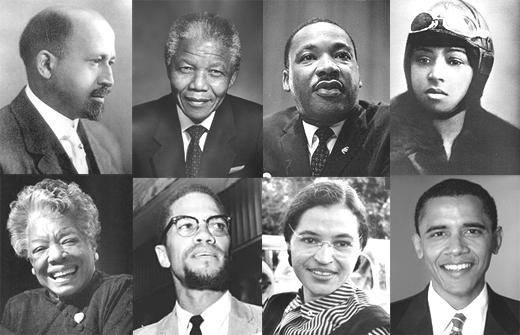Black History Month, also known as African-American History Month in America, is an annual observance in the United States, Canada, and the United Kingdom for remembrance of important people and events in the history of the African Diaspora. The story of Black History Month begins in 1915, half a century after the Thirteenth Amendment abolished slavery in the United States.
That September, the Harvard-trained historian Carter G. Woodson and the prominent minister Jesse E. Moorland founded the Association for the Study of Negro Life and History (ASNLH), an organization dedicated to researching and promoting achievements by black Americans and other peoples of African descent.
By the late 1960s, thanks in part to the Civil Rights Movement and a growing awareness of black identity, Negro History Week had evolved into Black History Month on many college campuses.
President Gerald R. Ford officially recognized Black History Month in 1976, calling upon the public to “seize the opportunity to honor the too-often neglected accomplishments of black Americans in every area of endeavor throughout our history.”
The event was first celebrated during a week in February 1926 that encompassed the birthdays of both Abraham Lincoln and Frederick Douglass. The response was overwhelming: Black history clubs sprang up; teachers demanded materials to instruct their pupils; and progressive whites, not simply white scholars and philanthropists, stepped forward to endorse the effort.
By the time of Woodson’s death in 1950, Negro History Week had become a central part of African American life and substantial progress had been made in bringing more Americans to appreciate the celebration.
At mid–century, mayors of cities nationwide issued proclamations noting Negro History Week. The Black Awakening of the 1960s dramatically expanded the consciousness of African Americans about the importance of black history, and the Civil Rights movement focused Americans of all color on the subject of the contributions of African Americans to our history and culture.
It was once called “Negro History Week” and was the creation of the noted historian Carter G. Woodson alongside other prominent African Americans. They started the Association for the Study of Negro Life and History (ASNLH) – “an organization dedicated to researching and promoting achievements by black Americans and other peoples of African descent.”

Now the organization is called the “Association for the Study of African American Life and History (ASALH). The first to make the proclamation was Gerald R. Ford who said that this was a time to “seize the opportunity to honor the too-often neglected accomplishments of black Americans in every area of endeavor throughout our history.”
Black history month is celebrated all over the world including the Caribbean. In response to the newly created Negro History Week, numerous schools and community groups across the country organized performances, lectures and other events to recognize and promote the achievements of black Americans.
Over the coming decades, mayors across the nation began issuing local proclamations for annual Negro History Week celebrations. In his 1996, President Bill Clinton issued Presidential Proclamation 6863 for “National African American History Month.”
This differs from previous presidents’ proclamations for “National Black (Afro-American) History Month” including those made by President Jimmy Carter and President George H.W. Bush’s 1991 proclamation.